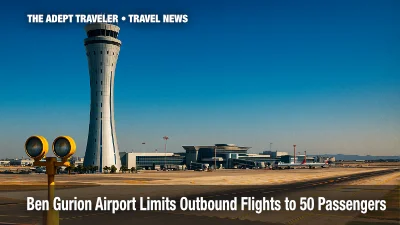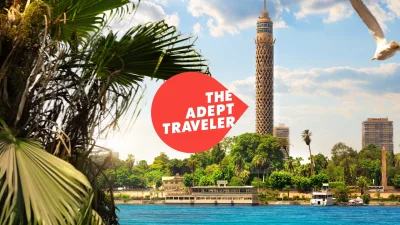Libya
Nestled along the Mediterranean coastline, Libya beckons travelers with its alluring blend of ancient history, natural beauty, and vibrant culture. Travel to Libya promises a kaleidoscope of experiences—wander through the hauntingly beautiful ruins of Leptis Magna, where the whispers of Roman emperors seem to linger in the dry desert breeze. Let the dazzling mosaics of Cyrene spark your imagination, while the vast Sahara unfurls like a golden tapestry, its rippling dunes shimmering under an endless sky. In bustling Tripoli, the labyrinthine streets are infused with the scent of freshly brewed Arabic coffee, and the calls of street vendors echo as you savor a taste of savory couscous imbued with spices that tell stories of Libya's Berber, Arab, and Mediterranean heritage. Whether you're drawn to the tranquil solitude of the desert or the lively bustle of coastal markets, travel to Libya offers a mesmerizing journey into a land of contrasts and captivating beauty, waiting to weave its spell on every curious soul.
Libya Travel Season
Travel to Libya offers an intriguing opportunity to explore a country rich with cultural history, Mediterranean coastlines, and vast desert landscapes. The best travel season for Libya is largely influenced by its climate. The most favorable time to visit is during the mild months of March to May and September to November. During these periods, the temperatures are more moderate compared to the severe heat of the summer, making it ideal for travelers. Spring and autumn in Libya are considered the shoulder seasons, offering a pleasant climate and fewer crowds.
The peak travel season to Libya occurs during the winter months from December to February. During this period, the weather is relatively cooler and far more comfortable, especially for those planning to explore the Sahara Desert or the ancient ruins of cities like Leptis Magna and Sabratha. However, travel during the peak season comes with the caveat of increased tourist activity and likely higher prices for accommodations and tours. Familiarity with local customs and events in Libya can enhance the travel experience
For those aiming to travel to Libya and enjoy a quieter trip with fewer tourists, the early spring and late autumn months are perfect. These off-peak times provide a balance of good weather and diminished tourist presence, creating an ideal setting for a more relaxed exploration of Libya’s attractions. Additionally, visiting during these months can often offer perks such as discounted rates on hotels and tours, as operators look to attract more visitors during less busy times.
Seasonal Insights
Travel to Libya is punctuated by several local events and holidays, which can provide enriching experiences for tourists. During the spring season, festivals such as the Tripoli International Fair in April bring a buzz of activity to the capital. This fair is an excellent opportunity for visitors to see Libyan culture and commerce firsthand. June to August is best avoided when planning travel to Libya due to the intense heat, particularly if visiting southern areas like the Fezzan region, where temperatures can soar above 40°C (104°F).
Autumn offers the perfect climate for those interested in undertaking outdoor activities. The pleasant weather facilitates trekking trips or desert safaris, where travelers can experience the awe-inspiring landscapes of the Sahara Desert. As cultural activities are not particularly seasonal, museums and historical sites are accessible year-round, but checking ahead for national holidays is recommended, as they may affect opening hours.
The Libyan hospitality extends into its culinary traditions, and tasting local dishes is a highlight of the travel experience. During Ramadan, the atmosphere in Libya shifts remarkably, which can affect travel plans as businesses may have altered hours. However, experiencing the breaking of the fast (Iftar) with locals can be a rewarding cultural exchange. Ultimately, the best time to travel to Libya is a balance between personal preference for climate comfort and the desired level of interaction with local events and crowds.
The Weather and Seasons in Libya
Libya is characterized by a predominantly dry desert climate, with vast tracts of arid land defining its environmental conditions. Weather plays a crucial role in travel experiences, and understanding the climate of Libya throughout the year is essential for anyone planning to travel to Libya. The country has two distinct climatic zones: the Mediterranean climate along the coast and the harsh desert climate inland.
Winter Weather in Libya
During the winter months, which span from December to February, the coastal regions of Libya experience mild and wetter conditions. Average temperatures range from 50°F to 68°F (10°C to 20°C), making it a comfortable time for travel to Libya, especially for visitors interested in exploring cities like Tripoli or Benghazi. Rainfall is relatively more frequent, though still limited, with humidity levels increasing slightly. Travelers should bring warm layers to adapt to cooler evenings along the coast.
Spring and Autumn in Libya
Spring, occurring in March through May, and autumn, from September to November, are marked by moderate temperatures and are considered highly favorable for travel to Libya. During these seasons, temperatures in Libya are generally between 68°F and 86°F (20°C to 30°C). Rainfall decreases significantly in spring and virtually disappears by autumn, which ensures plenty of sunny days. These conditions present the perfect opportunity for exploring Libya's ancient ruins and natural landscapes without the intensity of summer heat.
Summer Climate in Libya
Inland regions experience extremely harsh conditions in summer, from June to August. Temperatures often soar to between 95°F and 113°F (35°C and 45°C), with certain areas in the Sahara Desert reaching up to 122°F (50°C). Coastal areas, while still hot, are somewhat cooler due to Mediterranean breezes. Given the extreme heat, it is generally not recommended to travel to Libya's desert regions during summer. However, for those undeterred by high temperatures, summer provides an opportunity to witness the country's vibrant cultural festivals, which reflect local traditions and are often less crowded with tourists.
Best Time to Travel to Libya
The most favorable times for travel to Libya are during the spring and autumn months. The pleasant climate during these periods is ideal for sightseeing and engaging in outdoor activities, such as exploring the Sahara or visiting Libya's many UNESCO-listed archaeological sites. Events such as the Tripoli International Fair in the spring attract visitors from around the world, offering a glimpse into local culture and commerce against the backdrop of Libya's unique weather.
Given its diverse climate and striking landscapes, Libya provides a unique travel experience. With the right timing and planning, visitors can enjoy the country’s rich history and stunning environments across all seasons, making travel to Libya an unforgettable adventure.
Accepted Payment Methods and Other Payment Information in Libya
When you travel to Libya, understanding the payment options available is essential for a smooth experience. Libya's official currency is the Libyan Dinar (LYD), which is primarily used for most transactions across the country. For travelers, it is advisable to carry cash in local currency as it is widely accepted in markets, local shops, and for small purchases. The availability of ATMs is somewhat limited, and they may not always accept foreign cards, so it is beneficial to withdraw sufficient cash at banks or airports upon arrival.
While credit cards such as Visa and Mastercard have international recognition, their usage in Libya is quite restricted. Most businesses, especially smaller ones, do not support credit card payments, so travelers to Libya should plan accordingly. American Express and Discover cards are largely not accepted, making it important to have alternative payment methods. It is crucial to have cash at hand, as reliance on card payments might lead to inconveniences, especially outside major urban areas.
Cash remains the predominant method of transaction throughout Libya, necessitating that travelers to Libya bring adequate amounts of cash to cover everyday expenses. While banks and currency exchange offices offer services to convert foreign currency to Libyan Dinar, it is crucial to do this through legitimate outlets to avoid scams. Keep in mind that Libyan currency regulations may restrict how much money you can bring into or take out of the country.
Tipping in Libya is not obligatory but is appreciated in certain circumstances. In dining settings, leaving a tip of around 10% is a gesture of appreciation for good service. Porters, hotel staff, and guides typically also appreciate small tips. However, understanding local customs and utilizing discretion is vital, as the practice of tipping is not as ingrained as in some Western countries.
Using cash is essential when you travel to Libya, so having local currency on hand cannot be overemphasized. Given the limitations on credit card transactions, visitors are advised to exchange currency in advance and maintain a reserve of cash for their travel needs. If planning to use an ATM, it is prudent to verify their compatibility with your card beforehand. Staying informed about Libya's financial landscape and understanding the importance of the Libyan Dinar will go a long way in ensuring that your travel to Libya is seamless and enjoyable.
Why You Should Travel to Libya
Travel enthusiasts looking for a destination rich in history, culture, and natural wonders should consider the unique offerings of Libya. This North African gem offers unparalleled experiences for those who choose to explore its captivating lands.
Rich Historical Tapestry
Travel to Libya and immerse yourself in its incredible historical tapestry. Libya is home to some of the world's best-preserved ancient sites that tell the story of bygone eras, with UNESCO World Heritage Sites such as the ancient Roman city of Leptis Magna and the majestic ruins of Sabratha offering an awe-inspiring glimpse into history.
Untouched Sahara Desert Landscapes
Few places offer the raw, untouched beauty of the Sahara Desert, and travel to Libya provides an opportunity to witness its awe-inspiring landscapes. Experience the breathtaking dunes of the Ubari Sand Sea, marvel at the sparkling beauty of the Gaberoun oasis, or camp under the vast, star-filled skies for a truly unforgettable desert adventure.
Cultural Diversity and Heritage
Libya's cultural richness is a significant draw for travelers seeking diverse experiences. The country is a melting pot of Arab and Berber cultures, and exploring its bustling markets, traditional music, and local customs provides a deeper understanding of its multifaceted identity. With friendly locals eager to share their traditions, travelers will find Libya a welcoming cultural mosaic.
Beautiful Mediterranean Coastline
When you travel to Libya, you'll discover the allure of its Mediterranean coastlines. With over a thousand kilometers of coastline, Libya offers pristine beaches and crystal-clear waters. Whether you're interested in the vibrant ports or seeking a quiet spot to unwind by the sea, Libya's coast is a hidden gem waiting to be explored.
Archaeological Wonders
For aficionados of archaeology, Libya offers wonders that will captivate the mind. Cyrene is one such marvel, a Greco-Roman archaeological site nestled in the lush green hills of Jebel Akhdar. As you wander through temples, theaters, and ancient streets, the echoes of a great civilization resonate with every step.
Mountains and Verdant Valleys
The Jebel Akhdar, or Green Mountains, provide a refreshing contrast to the arid desert landscapes. Travel to Libya to explore these mountains, where misty peaks and verdant valleys serve as the backdrop to ancient Greek and Roman settlements. The hiking trails here offer breathtaking views and a chance to experience Libya's natural beauty up close.
Diverse Wildlife and Natural Reserves
For nature enthusiasts, Libya is home to a variety of wildlife and stunning nature reserves. The Karabolli National Park and the forests of Jebel Akhdar are havens for bird-watchers and those interested in flora and fauna. These regions contribute to Libya's ecological richness, providing spaces for wildlife viewing and outdoor recreation.
Culinary Delights
When you indulge in the culinary delights of Libya, you are taken on a gastronomic journey that reveals the nation's rich cultural tapestry. Travel to Libya and savor traditional dishes like couscous, bazeen, and the aromatic lamb stews, which offer a taste of Libya's rich, flavorful cuisine influenced by Mediterranean and African flavors.
Fascinating Rock Art Sites
Hidden within Libya's rugged terrain are unique rock art sites that offer a fascinating peek into prehistoric times. Places like the Acacus Mountains showcase ancient engravings and paintings that depict the lives of the Sahara's early inhabitants. Visiting these sites allows travelers to connect with humanity's distant past.
Travel-Friendly Environment
Travel to Libya is becoming increasingly accessible as infrastructure and services improve. With a focus on sustainable tourism and hospitality, Libya is opening its doors to explorers who seek authentic experiences away from the tourist crowds. Your journey to Libya will be marked by adventure and discovery.
The History of Libya
Libya's rich history is a tapestry woven from the diverse cultural influences of various civilizations that have traversed and settled in its lands. This North African country, characterized by its vast desert landscapes and a Mediterranean coastline, has been a significant geographical nexus for different cultures throughout antiquity. Those who travel to Libya will find themselves stepping into the footprints of great ancient civilizations, each leaving indelible marks on the landscape. From the captivating ruins of the Phoenicians and the refinement of the Roman Empire to the austere beauty of the Islamic period, Libya is a testament to centuries of human history and cultural development.
Ancient Civilizations in Libya
For history enthusiasts, Libya is much more than an exotic destination; it is an open-air museum waiting to be explored. One of the must-visit sites is Leptis Magna, an ancient Roman city situated along the coast. Known for being one of the best-preserved Roman cities in the Mediterranean, Leptis Magna offers a hypnotic glimpse into Roman urban planning and architecture. Another impressive site is Cyrene, an ancient Greek colony that's now a UNESCO World Heritage site. Nestled in the lush hills of Jebel Akhdar, this archaeological wonder boasts temples, public buildings, and intricate mosaics that echo the grandeur of the Greek influence. These sites are not just tourist attractions; they constitute a historical journey that enriches our understanding of ancient societies and their contributions to world history.
The Islamic Influence on Libya
The Islamic era marked a transformative period in Libya's history, shaping its cultural, social, and architectural landscape significantly. The spread of Islam introduced architectural landmarks that are equally mesmerizing, such as the Gurgi Mosque in the heart of Tripoli. The mosque, built in the 19th century, is a notable example of Islamic architecture, blending Ottoman and local styles. Additionally, travelers can explore the Assaraya Alhamra, or Red Castle, which stands as an embodiment of Islamic design and Tripoli's historic resilience. These sites highlight how Islamic art and architecture flourished and are integral to understanding the cultural depth of Libya beyond its ancient ruins.
Modern History and Current Appeal
The 20th and 21st centuries have been periods of dramatic transformation for Libya. Following WWII, Libya gained independence from colonial powers, which was a pivotal moment in its national narrative. In more recent history, the 2011 Libyan Civil War resulted in significant political changes, influencing the modern identity of the country. Despite the challenges, Libya remains a compelling travel destination for those interested in contemporary history intertwined with ancient roots. Its cities, like Tripoli and Benghazi, offer vibrant markets, flavorful cuisine, and the warmth of Libyan hospitality, all of which beckon travelers to immerse themselves in its living history. The appeal of traveling to Libya lies not only in its ancient historic allure but also in its resilient, evolving modern identity.
The Culture of Libya
Libya, a nation nestled in North Africa, is a country steeped in rich historical and cultural heritage that beckons travelers from across the globe. One of the most captivating aspects of Libyan culture is its tapestry of traditions that have been passed down through generations. The local traditions of Libya are deeply rooted in Arab and Berber influences, evident in every aspect of daily life. Libyans are known for their warmth and hospitality, often welcoming guests with elaborate meals and customary tea ceremonies. This cultural custom is not merely a practice but an integral part of Libyan identity that travelers will find inviting and deeply enriching.
Festivals and celebrations in Libya offer a unique glimpse into the country's vibrant culture. Events such as the Ghadames Festival, held in one of Libya's most picturesque oases, showcase the best of traditional Libyan dance, music, and art. During the holy month of Ramadan, the streets of Libya come alive at night as families gather to break their fast together, reflecting the strong communal bonds that unite Libyan society. These festivities present an unparalleled opportunity for those who travel to Libya to witness the collective joy and cultural unity that define this remarkable nation.
The daily customs of Libya are deeply intertwined with its religious and cultural beliefs. The typical day for Libyans revolves around family, prayer, and the appreciation of simple pleasures like sharing food. Art, music, and dance are integral parts of Libyan cultural expressions as well. Traditional music instruments such as the oud and darbuka contribute to the country's enchanting soundscape, while folk dances like the tuareg dance exude an otherworldly grace and pride. These cultural expressions are not only entertainment but also an important medium for storytelling, preserving the history and folklore of Libya for future generations.
Libya's multicultural composition adds to its unique allure, with various ethnic groups such as the Berbers and Tuareg contributing to the mosaic of Libyan society. This diversity is mirrored in the country's languages, clothing styles, and culinary traditions. Additionally, there's a growing focus on preserving indigenous cultures and promoting cultural heritage sites, such as the UNESCO-listed Leptis Magna, which intrigue and fascinate historians and travelers alike. These efforts highlight Libya's commitment to maintaining the vivid colors of its cultural landscape, encouraging more travelers to explore and appreciate the depth and diversity that "Travel to Libya" offers.
The Culinary Experience of Libya
Travel to Libya and you'll find that the culinary landscape is as rich and diverse as its history and culture. The local cuisine is a flavorful reflection of its Mediterranean location, infused with influences from Italian, Berber, and Arab culinary traditions. As you explore Libya, you'll encounter a variety of must-try dishes that are an essential part of any culinary expedition. Key staples in Libyan cooking include bread, lamb, and seafood, often served as part of hearty dishes that abound in the local spices and herbs. The distinctive aromas of cumin, coriander, and mint weave through the markets and dining establishments, inviting travelers to indulge their taste buds.
Among the essential dishes when you travel to Libya is Bazin, a traditional staple made from barley flour dough that's typically served with lamb stew and a savory tomato sauce. The dish is an excellent representation of the communal dining culture in Libya, often shared among family and friends from a single serving platter. Other culinary highlights include Couscous, found in various regional interpretations across Libya; the seafood-laden spiced couscous along the coast is a favorite. Ossban, a type of stuffed lamb sausage, and Shakshouka, a spicy tomato and egg dish, showcase the country’s love for robust flavors. For those with a sweet tooth, Asida—a simple dessert made from wheat flour, honey, and butter—is a delightful way to complete a meal.
Wine, spirits, and beer play a more background role in Libya due to the predominately Muslim population and cultural norms. However, visitors can discover a selection of non-alcoholic beverages that are intrinsic to Libyan hospitality. Mint tea, served ubiquitously in homes and markets, is a staple that's not to be missed. For a refreshing alternative, travelers can enjoy the local beverage, Sharbat, made with a mix of citrus fruits and sugar, offering a sweet respite, especially in the warm Libyan climate. As you engage with the culinary offerings, you'll note how these experiences provide a window into respecting the customs that define Libyan social interactions and hospitality.
Unique dining experiences abound when you travel to Libya, with food markets and street food vendors providing authentic tastings of Libyan fare. The cities of Tripoli and Benghazi offer bustling markets where the aromas of grilling meats and fresh bread fill the air. For those seeking an upscale dining experience, there are fine-dining venues that blend traditional Libyan recipes with contemporary gastronomic techniques. While traditionally meat-heavy, the culinary scene in Libya is slowly adapting to cater to diverse dietary needs. Travelers following a vegan or vegetarian diet can enjoy dishes featuring fresh vegetables, grains, and legumes, particularly in urban areas where international influences are more pronounced. This adaptability offers a glimpse into the country's growing cosmopolitan dining landscape, reflecting Libya’s commitment to welcoming travelers from all walks of life.
What to See and Do in Libya
For those looking to embark on a journey through time, the ancient ruins of Leptis Magna offer an unforgettable travel experience in Libya. This UNESCO World Heritage site is one of the best-preserved Roman cities outside of Italy. Here, travelers can wander through vast forums, grand temples, and Roman baths, marveling at the intricate mosaics and the majestic Arch of Septimius Severus. The blend of architectural magnificence and rich historical narratives makes Leptis Magna a must-visit for history enthusiasts and culture aficionados.
Explore the Mysteries of the Sahara
Adventure seekers won’t want to miss the opportunity to travel to Libya's heart-pounding Sahara Desert. Expeditions into the desert can range from day trips to see the towering sand dunes and breathtaking sunrises to multi-day camel treks to truly experience the vastness of this desert landscape. Activities such as sandboarding and stargazing allow travelers to engage actively with the environment while also enjoying its serene beauty. The Sahara offers a deep sense of isolation and peace, making it perfect for those looking to escape and reflect.
Discover the Amazigh Culture in Ghadames
Ghadames, known as the "Pearl of the Sahara," offers an immersive cultural experience for those interested in the traditions of the Amazigh people. This oasis town showcases a network of ancient whitewashed buildings with unique lunar interiors. Here, travelers can participate in cultural festivals and try local delicacies, enjoying the warm hospitality of the Amazigh. Walking through the labyrinthine streets of Ghadames offers an insight into a lifestyle unchanged for centuries, perfect for culturally curious visitors and families.
Unwind on the Beaches of the Mediterranean
Libya's Mediterranean coastline provides an array of pristine beaches perfect for those looking to relax and rejuvenate. With miles of unspoiled sandy stretches and crystal-clear waters, travelers can indulge in a variety of water activities, including swimming and snorkeling. Family travelers will appreciate the safe, shallow waters, while solo adventurers can revel in the uninterrupted tranquility of Libya's secluded beach spots. These beaches offer a refreshing contrast to the desert landscapes common in Libya.
Visit the Vibrant Capital of Tripoli
Tripoli, the capital city of Libya, is a vibrant metropolis that elegantly marries the ancient with the modern. Travelers can explore the Red Castle Museum to learn about Libyan history or wander through the ancient medina with its narrow alleys full of market vendors selling spices, textiles, and handcrafted goods. Tripoli’s street food scene provides an excellent taste of Libyan cuisine, and visitors can enjoy sampling local dishes such as couscous and lamb stew. The city's lively atmosphere provides a dynamic cultural experience for all visitors.
Embark on an Ecological Quest in the Green Mountains
For those with a passion for ecology and hiking, the Akhdar Mountains, or Green Mountains, present a unique travel opportunity in Libya. This lush region, unusual in Libya’s arid environment, offers verdant trails and rich biodiversity, appealing to nature lovers and adventure seekers. Exploring the forests and ascending the trails leads to panoramic vistas of the Mediterranean, rewarding the journey with breathtaking views. The Green Mountains offer a rare Libyan landscape, inviting those who enjoy outdoor challenges and the wonders of nature.
Marvel at the Ancient City of Sabratha
Sabratha, another gem of Roman antiquity, provides a wondrous journey into the past along Libya’s scenic coast. The city is famous for its stunning theater facing the sea, which still hosts occasional performances today. Walk along the ruins of temples dedicated to Jupiter and Hercules, and explore the impressive basilicas and mosaics that narrate ancient tales. The site’s easy accessibility makes it an ideal cultural stop for both solo travelers and families traversing Libya's rich historical landscape.
Explore the Oasis of Ubari
Tucked in the middle of the Sahara, the Ubari Lakes offer an unexpected touch of beauty in Libya’s arid desert. Surrounded by palm trees and sand dunes, these striking salt lakes are a paradise for photographers and nature enthusiasts. Visitors can swim in some of the lakes and enjoy the surreal landscape, creating a magical moment that defies the typical desert experience. Ubari is an ideal stop for adventurers seeking to encounter the hidden gems of the Libyan desert.
Learn about Libya's Liberation at the Martyrs' Square
At the heart of Tripoli lies Martyrs' Square, a central hub of cultural significance, perfect for those wanting to understand contemporary Libya. Once called Green Square, it was the site of key events during Libya's recent history. The square frequently hosts public events, allowing travelers to witness the modern pulse of Libyan society. Its location near the city's coastline and historic areas makes it an inviting spot for tourists to soak in the local culture and history simultaneously.
Discover the Magic of the Libyan Desert Lakes
The desert lakes of the Idehan Ubari in Libya offer a starkly beautiful contrast to the surrounding arid sands. These isolated bodies of water are framed by dunes and palm groves, providing an unusual and serene backdrop for photos and reflection. Visitors can explore the Sahara and indulge in the surreal experience of finding such vibrant oases in a seemingly barren landscape. This rare ecological phenomenon creates a surreal environment, captivating all who venture into these hidden corners of Libya.
Tips & Tricks for Traveling in Libya
While planning your travel to Libya, familiarize yourself with the local customs and etiquette. Libyan culture is heavily influenced by Islam, and respecting its customs is essential for a pleasant journey. Dress modestly, especially in rural areas and traditional sites. Avoid public displays of affection, and always ask permission before taking photographs of people. Familiarize yourself with the basic Arabic phrases as a gesture of respect and to facilitate smoother interactions with locals. When entering homes or certain religious sites, remember to remove your shoes as a sign of respect.
Be prepared for variable transportation options when you travel to Libya. Public transportation is limited, so renting a car might be your best bet if you’re comfortable with driving. Bear in mind that road conditions can vary significantly; urban roads are generally good, but those in rural areas can be challenging. Alternatively, taxis are widely available but negotiate the fare before starting your journey as meters are rarely used. For longer distances, domestic flights can save time, but plan ahead to book your tickets.
Budgeting for your travel to Libya can ensure a more enjoyable trip. Currently, Libya may not have as widespread accommodation options as more tourist-heavy countries, but prices are generally reasonable. Always carry some local currency, the Libyan dinar, as credit cards are not widely accepted. For meals, local eateries offer delicious, affordable options. Tipping, while not mandatory, is appreciated in restaurants and for services; rounding up the bill or leaving a tip of about 10% is customary if the service charge is not included.
To get the most out of your travel to Libya, avoid tourist-heavy areas during peak hours. Many sites, like those in Tripoli or the ancient city of Leptis Magna, are at their busiest mid-morning to early afternoon. Plan your visits for early morning or late afternoon to enjoy a more leisurely experience and better lighting, especially for photography enthusiasts. Research lesser-known attractions or dive into Libya’s rich history with guided tours that operate during off-peak times.
Before you embark on your journey, gather essential travel documents for a smooth trip to Libya. Ensure your passport is valid for at least six months and acquire a Libyan visa through the proper channels; most countries require it for entry. Keep multiple copies of your travel documents, including your visa, passport, and travel insurance. A secure, waterproof pouch can help protect these documents from damage. Check for any travel advisories and confirm health requirements such as vaccinations before you travel.
Networking with locals enhances your travel experience in Libya immensely. Engaging with Libyan people can offer unique insights into the culture, providing you with invaluable travel tips straight from the source. Use social media platforms or travel forums to connect with Libyans before you leave. Consider hiring local guides to explore historical sites and understand the stories behind them. Building a rapport with locals often results in discovering hidden gems that are off the traditional tourist trails.
For those wishing to capture the beauty of Libya, plan your photography around the country’s unique lighting conditions. The Mediterranean light in Libya is best in the early morning or late afternoon; this golden hour adds a stunning depth to landscapes and monuments. Seek out unique locations away from crowds for better compositional opportunities. Always be considerate of cultural sensitivities, particularly around photographing people and religious sites, and always ask for permission where needed.
Seasonal considerations are crucial to planning travel to Libya. The climate varies greatly, with the coastal areas being milder and the desert areas experiencing extreme temperatures. Spring (March to May) and autumn (September to November) are the most comfortable times for travel, offering pleasant weather and fewer crowds. If you plan to visit during the summer, be prepared for high temperatures, particularly in the Sahara region. Always carry enough water and wear protective clothing.
Staying connected is invaluable when you travel to Libya. Local SIM cards are readily available at major airports and city centers, offering more reliable and cheaper connectivity than international roaming. Choose a plan that suits your travel duration and data needs. Many hotels and cafes also offer Wi-Fi, though the connection can be inconsistent. Using local SIMs will help you use navigation maps and contact local services more easily without hefty charges.
Prepare for diverse culinary experiences as you travel to Libya. Libyan cuisine is often rustic yet flavorsome, heavily featuring grains, olives, lamb, and seafood. Try traditional dishes such as couscous topped with harissa and grilled meats, or the Ghadames-style stuffed lamb for a feast of flavors. Markets, or souks, are the perfect places to sample local snacks and teas. Remember that food and meal etiquette in Libya can include moments of silence before meals, as well as using the right hand for eating and sharing dishes communally.
What To Know Before You Go to Libya
When considering travel to Libya, understanding the entry requirements is essential. Most travelers need a visa to enter Libya, and it's important to obtain one before departure, as visas on arrival are typically not available. Contacting the Libyan embassy in your country for the latest visa regulations is advisable. Additionally, ensure your passport is valid for at least six months beyond your planned stay.
Health and safety are crucial aspects of any international travel. For travel to Libya, make sure to be up-to-date with routine vaccinations, including measles, mumps, rubella (MMR), diphtheria, tetanus, and pertussis (DTP). Travelers are strongly recommended to get vaccinated against hepatitis A and B, typhoid, and, depending on regions visited, rabies. It's also wise to carry proof of yellow fever vaccination if coming from a yellow fever endemic area. Secure comprehensive travel insurance that covers medical evacuation, as healthcare facilities may vary in quality.
Local Customs and Etiquette
Understanding Libyan customs and etiquette can greatly enhance your travel experience in Libya. Hospitality is a core component of Libyan culture, and guests are often treated with warmth and generosity. Dress modestly, particularly in more conservative areas, with women advised to cover their arms and legs. Greetings are often formal, with a handshake being a common gesture, but be aware of gender norms as physical contact between opposite sexes can be inappropriate in some cases.
Transportation Options
Travel to Libya requires some planning regarding transportation. Public transportation options are limited in the country, with taxis and rental cars being the most viable options for travelers. When hiring taxis, it's better to negotiate fares upfront. If you choose to rent a car, remember that driving is on the right side of the road, and international driving licenses are recommended. Be cautious of road conditions and check safety advisories before embarking on road trips.
Tipping Culture
The tipping culture in Libya can vary. In restaurants, a service charge is often included in the bill, but rounding up the bill or leaving a small additional tip is appreciated. For taxi services, a small tip is welcomed but not obligatory. Always consider the level of service and the local customs when deciding on tipping.
Language and Communication
Arabic is the official language in Libya, with English proficiency varying, particularly among the younger population. Learning a few basic phrases in Arabic can greatly assist in communication during your travel to Libya. Common phrases such as "Shukran" (Thank you), "Min fadlak" (Please), and "As-salamu alaykum" (Hello/Peace be upon you) can go a long way. Carrying a translation app or phrasebook is beneficial for tourists.
Planning travel to Libya requires careful preparation to ensure a safe and enriching experience. By understanding entry requirements, respecting local customs, knowing your transportation options, and preparing for health and communication needs, travelers can enjoy their time exploring Libya's unique history and culture.
Accessibility in Libya
When considering travel to Libya, accessibility is a crucial aspect for travelers with diverse needs. Libya's infrastructure for accessibility is evolving, and it is essential to understand the opportunities and challenges it presents for those with limited mobility, as well as for those who are visually or hearing impaired.
Physical Accessibility in Libya
Travelers planning to explore Libya with physical limitations may find that physical accessibility varies across different areas. Major urban centers like Tripoli and Benghazi have been working towards improving access for individuals using wheelchairs, although progress can be inconsistent. Some buildings have ramps and wider entrances, but it is advisable to check in advance as standards can vary significantly between establishments.
Public Transportation Options
Public transportation in Libya presents challenges for travelers with limited mobility. The country’s public transport system lacks widespread accessible facilities, which can make travel within cities difficult for those using wheelchairs. Taxis are a more viable option, although it is important to communicate specific needs beforehand to ensure suitable transportation arrangements are available.
Accessible Accommodation
Accommodations in Libya are gradually adapting to meet the needs of travelers requiring accessibility. While there are some hotels that offer accessible rooms with necessary amenities, such as grab bars and roll-in showers, it is essential to confirm these features directly with the hotel prior to booking. Facilities in more rural areas may offer fewer options compared to urban settings.
Visually and Auditory-Impaired Accommodations
For travelers with visual or auditory impairments considering travel to Libya, accommodations and resources are limited. Few places provide specialized services such as braille signage or hearing loops. Travelers may need to rely more on personal preparation and technology, such as mobile apps, to assist with navigation and communication during their trip.
Accessible Tourist Attractions
In Libya, certain tourist attractions offer relatively better accessibility compared to others. Historical sites such as Leptis Magna and Sabratha have seen efforts to improve access, although challenges still exist due to the ancient nature of these locations. For those planning a visit, it is recommendable to inquire about current access conditions and potentially seek guided tours that can accommodate specific mobility needs.
Travel to Libya requires careful planning and consideration for those with accessibility needs. While there are promising developments in infrastructure, it is advisable for travelers to conduct thorough research and advance planning to ensure a more comfortable and accessible experience while exploring the rich cultural and historical landscape of Libya.
Health & Safety in Libya
Travel to Libya presents a range of safety concerns that prospective travelers should be aware of before embarking on their journey. Due to ongoing political unrest and regional conflicts, Libya remains a challenging destination requiring careful preparation and consideration.
Crime and Personal Safety
Libya has experienced significant instability since 2011, which has contributed to increased crime rates, including theft, robbery, and pickpocketing. Travelers are advised to remain vigilant, particularly in crowded areas and markets where pickpocketing is common. It is recommended to use hotel safes for valuables and carry only essential items when exploring.
Political and Social Unrest
The political situation in Libya is unstable, with frequent reports of armed conflict and militia activities. Regular clashes between different factions can occur, particularly in and around major cities like Tripoli and Benghazi. Travelers should stay informed about the current situation via reliable news sources and avoid involvement in local political activities or demonstrations, which can be volatile and dangerous.
Water and Food Safety
Water safety is a significant concern when traveling to Libya. Tap water is not considered safe for drinking, and travelers should rely on bottled water for hydration. Additionally, care should be taken with food hygiene, particularly when eating street food or in rural areas. It's advisable to consume food from reputable restaurants to minimize the risk of foodborne illnesses.
Health and Medical Precautions
The healthcare system in Libya is underdeveloped and may lack basic supplies and facilities, especially in remote areas. Travelers should secure comprehensive travel insurance before departing and ensure it covers evacuation in case of a medical emergency. Vaccinations are crucial; travelers should be up to date on routine vaccines and consider additional vaccinations such as hepatitis A, hepatitis B, and typhoid, depending on their travel itinerary.
Natural Disasters
Flooding is the most significant natural disaster risk in Libya, particularly during the rainy season. Travelers should be aware of the possibility of flash floods, especially when traveling through rural areas or crossing wadis (dry riverbeds). Monitoring weather forecasts can provide advance warning of adverse weather conditions.
Travel to Libya requires thoroughly assessing the environment and understanding potential risks, especially regarding personal safety and health measures. By staying informed and making informed decisions, travelers can enhance their safety and security throughout their journey.
Other Places You Might Like
Martyrs' Square, Tripoli, Libya – Martyrs' Square in Tripoli is a hub of history and culture at the heart of Libya. For those who love traveling to Libya, experiencing the vibrancy of Martyrs' Square, alive with stories of revolution and resilience, will find a similar spirit in Marrakech's Jamaa el Fna. This iconic square is a sensory overload filled with storytellers, musicians, and market stalls, capturing the essence of North African culture much like Tripoli's central square.
Ghadames, Libya – Known as the "Pearl of the Desert," Ghadames is an oasis town that represents Libya's rich history and Berber culture. Those who travel to Libya and find themselves captivated by Ghadames' unique architecture and ancient traditions will similarly appreciate the medina of Fes in Morocco. The old city of Fes, with its labyrinthine streets and historic madrassas, offers a deep dive into a cultural and architectural world that echoes Ghadames' charm.
Leptis Magna, Libya – As one of the most well-preserved Roman sites outside of Italy, Leptis Magna offers a striking look into the Roman Empire’s reach within Libya. Travelers fascinated by this expansive archaeological site can turn their attention toward Ephesus, Turkey, where they can explore another ancient marvel complete with a vast amphitheater, a massive library, and more, capturing the essence of human history much like their experience at Leptis Magna.
Acacus Mountains, Libya – The stunning Acacus Mountains with their prehistoric rock art captivate those who travel to Libya with a sense of ancient mystery and breathtaking landscapes. Travelers who enjoy the natural beauty and historical significance of this Libyan treasure should consider the Tasili n'Ajjer National Park in Algeria. With its vast array of prehistoric paintings and rock formations, the park offers a similarly riveting experience, enticing travelers with a sense of wonder and historical fascination.
Sabratha, Libya – This city is adorned with ancient Roman architecture, including a theater that overlooks the Mediterranean Sea, capturing the hearts of those who travel to Libya for its cultural depth and historical significance. Those who loved Sabratha's blend of art and sea might find the ancient city of Caesarea in Israel equally enthralling, with its stunning ruins also set against the backdrop of the Mediterranean, offering an enchanting blend of history and coastal beauty.
Final Thoughts
Travel to Libya, a destination where ancient history meets natural beauty, offers a uniquely enriching experience for every traveler. The vast expanse of the Sahara Desert invites you to explore its mesmerizing dunes and historic trade routes, while the Roman ruins of Leptis Magna and Sabratha provide an extraordinary glimpse into a rich and storied past. Libya's Mediterranean coastline, with its pristine beaches, beckons those who seek tranquility or adventure in equal measure. As you travel to Libya, you can immerse yourself in a culture that is warm and welcoming, blending influences from Africa, the Middle East, and the Mediterranean into a distinctive local flavor that enriches every interaction.
Venturing to Libya for your next travel adventure offers a remarkable journey through time and nature. Whether you're captivated by the allure of ancient civilizations, the stunning Saharan landscapes, or the vibrant local culture, Libya promises an unforgettable experience. So why wait? Consider Libya for your next adventure and discover a part of the world that is as intriguing as it is beautiful. Experience the wonder of travel to Libya and uncover the myriad secrets and delights that await in this extraordinary land. Let Libya inspire your wanderlust and be the backdrop to your next great story.
Oman Air Grounds Jets As Supply Chain Crunch Hits Schedules

Conflicts Redraw Airspace, Forcing Costly Detours

GCC Grand Tours Visa Simplifies Gulf Travel for U.S. Passport Holders

Gulf Air Returns to U.S. With Nonstop Bahrain-New York Flights

United Airlines Restarts Tel Aviv Flights July 21

Airlines Still Skirt Iranian Airspace, Prolonging Travel Times

Current Travel Advisories 2025: What U.S. Travelers Must Know

Ben Gurion Airport reopens, stranded travelers finally fly home

Iran Airspace Closures Force U.S. Airlines to Detour

Worldwide Caution Alert: What American Travelers Need to Know Now

Ben Gurion Airport Limits Outbound Flights to 50 Passengers

Is It Safe to Drink the Water in the Middle East and Northern Africa? Essential Guide

